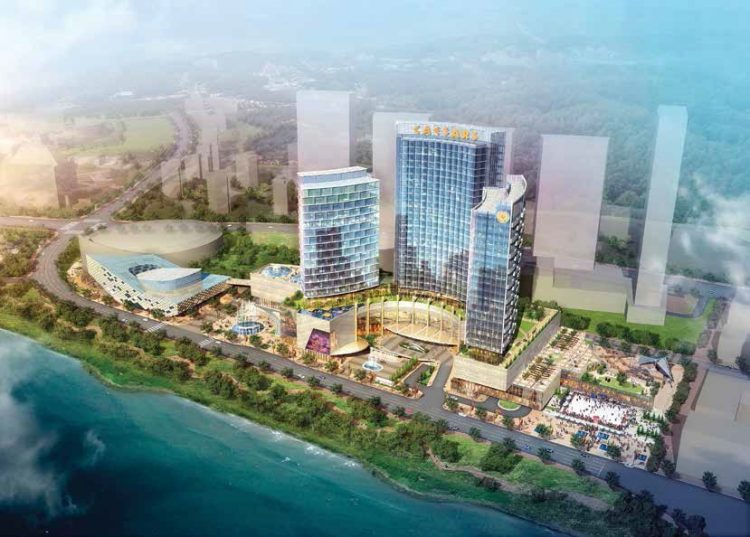Caesars Entertainment missed out on casino licenses in both Macau and Singapore, and it has been seeking a way to enter Asia ever since. In South Korea, it finally appears to be close
In late 2001, Macau opened the tendering for three new casino licenses to end Stanley Ho’s 40-year monopoly. Caesars Entertainment—then known as Harrah’s—was the world’s largest casino operator at the time and notably absent from the list of 21 bidders.
Caesars then missed out on a chance to enter Singapore when in 2006 it pulled out of the race for one of two licenses up for grabs following the city-state’s decision to legalize and bring casinos there. Announcing its withdrawal from the bidding, Caesars said the investment required in the Lion City would be too costly.
In Caesars’ defense, few imagined at the time how massive the gaming markets in Macau and Singapore would become almost overnight. As a consequence of winning licenses in both those lucrative jurisdictions, Las Vegas Sands, which in 2001 had just one Vegas property in its portfolio, rose to become the No. 1 international casino operator by market capitalization. Caesars, meanwhile, owing to its reliance on a stagnating US market, saw a reversal of fortune. The company’s net loss of $1.76 billion in the fourth quarter was largely attributable to write-downs connected with its US operations.
Witnessing the soaring fortunes of LVS and Wynn in Macau, Caesars in 2007 made a vain attempt to gain a presence there by paying an astounding US$577 million for a loss-making local golf course which it eventually disposed of last year for $438 million.
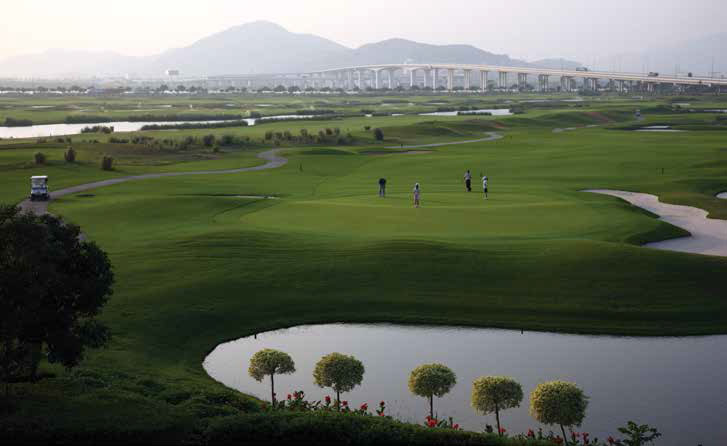
Now, at last, it may be on its way to securing a coveted foothold in Asia. Last month, a Caesars-led joint venture obtained provisional approval from the South Korean government to operate a foreigners-only casino at a proposed US$794 million integrated resort on Yeongjong Island, a special economic zone located near the port city of Incheon and the country’s maininternational airport.
The JV company is called LOCZ Korea Corporation, held 40% by Caesars, 40% by Lippo Group, an Indonesian conglomerate listed on the Hong Kong Stock Exchange, and 20% by OUE Limited, a real estate developer traded on the Singapore Stock Exchange and controlled by Lippo. Part of Caesars’ share in the venture could be held by its Caesars Growth Partners subsidiary.
Caesars Growth Partners was spun off last year as part of a complex restructuring designed to attract capital to fund growth and shield some of Caesars’ better-performing assets from the possibility that its bondholders might move on them. Caesars, which is struggling under $20 billion-plus in debt, recently bought itself some additional room to maneuver by selling four casinos to CGP for $2.2 billion—which, incidentally, is the amount of total investment contemplated in the Yeongjong Island resort at full build-out, which will occur over several phases.
The first phase is expected to cover 4.3 hectares and 150,000 square meters of developable floor space encompassing three hotel towers with 760 rooms and suites and non-tourist amenities that include entertainment venues and a stand-alone convention center.
Caesars and Lippo hope to have the resort open in time for South Korea’s hosting of the 2018 Winter Olympics.
“It’s going to change the landscape of Korean casinos because it’ll be the first integrated resort-style foreigners-only casino,” D.S. Kim, a Hong Kong-based analyst at BNP Paribas Securities Asia told Bloomberg News. “The existing casinos in Korea are like gambling dens which do not offer any non-gaming amenities such as spas, restaurants or entertainment shows. They simply cannot cater for large groups of visitors.”
Caesars Chairman Gary Loveman said, “We are excited about the opportunity to expand our network and brands to Asia. Foreign visitation to South Korea has grown significantly, and we look forward to creating a world-class destination to further support Korea’s economic growth and tourism goals.”
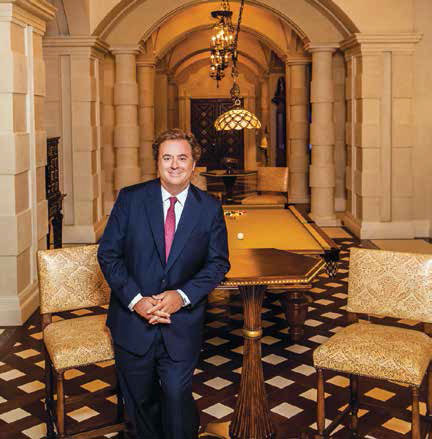
Those goals envision casinos as integral to raising South Korea’s appeal as a destination for Asia’s booming travel market, particularly the Chinese segment, which accounted for 36% of foreign visitors to the country last year and 41% of casino visits, according to official data. Bloomberg reports that the government is looking to more than double China’s contribution to the economy from 4 million or so visitors currently to 10 million by 2020.
“Korea is the optimal location to draw Chinese bettors,” Song Hak Jun, a professor in the hotel and convention management department at Pai Chai University in Daejon, told Bloomberg. “Everyone’s competing to absorb China’s outbound tourist demand.Having casino resorts will initially bring explosive growth to Korea, too.”
The market, consisting of 17 casinos, all but one of which are off-limits to Korean nationals, generated US$2.7 billion in gaming revenue last year, according to research house CIMB. It was slightly higher than the Philippines’ $2.6 billion but well behind Singapore’s $6.4 billion.
In a recent report to investors, the Seoul office of UBS Securities said the government may select “three or four” foreign operators to join Caesars at the special resort district the government is sponsoring at Yeongjong, which lies about one hour’s drive from Seoul. One of them is expected to be South Korea’s Paradise Entertainment, the dominant operator in the foreigners-only market, which plans to develop a gaming resort of comparable size and cost in partnership with Japanese pachinko giant Sega Sammy Holdings.
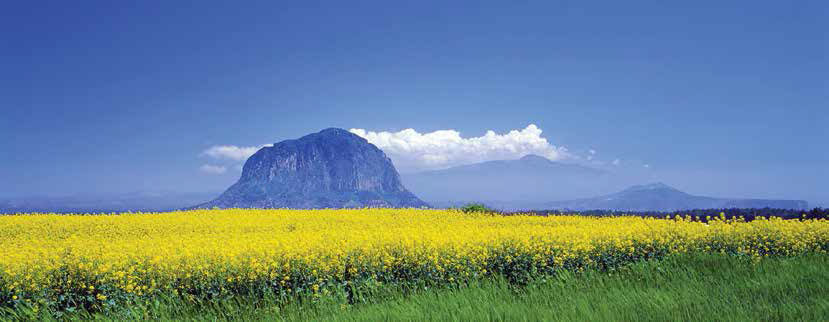
Two sizable projects also are moving forward down in the southwest in the Korea Strait, on the popular resort island of Jeju. Genting Singapore, which operates that city’s Resorts World Sentosa casino, is joining with Chinese property developer Landing International Development on a casino with a hotel and supporting amenities on Jeju. The other development, dubbed Jeju Airest City Berjaya Jeju Resort, is a sprawling complex of condominiums, hotels, retail space, a medical center and spa and sports and entertainment facilities.
The Ministry of Culture, Sport and Tourism is looking to the LOCZ project on Yeongjong Island to deliver more than 890 billion won in tourism income ($830 million) and 8,000 jobs in the construction phase.
Their preliminary approval does not guarantee a gaming license, however. There are investment thresholds still to be met, and Caesars’ initial bid for a license was rejected last summer, reportedly because the government was concerned about the industry-high debt load the company has been carrying since its buyout by private equity interests in 2008.
The government also nixed a bid by Japan’s Universal Entertainment, the gaming machine giant controlled by Kazuo Okada. Universal has not reapplied.
News reports over the last several weeks suggest the government is anxious enough for foreign investment to be considering loosening its requirements. It may also shift to an open bidding process instead of requiring prior approval at the ministerial level. As the rules stand, though, LOCZ must invest $500 million over the next three and a half years, and the government is seeking legislative approval to bar the consortium from operating the casino until it invests a total of $700 million.
In a research note, Morgan Stanley’s HyunTaek Lee and Praveen Choudhary noted, “This is a provisional license. The final license is scheduled to be issued in January 2018 only if LOCZ delivers what they promised to the Korea Government, including: 1) annual audit, 2) annual report on investment progress, and 3) invested money managed in single account.”
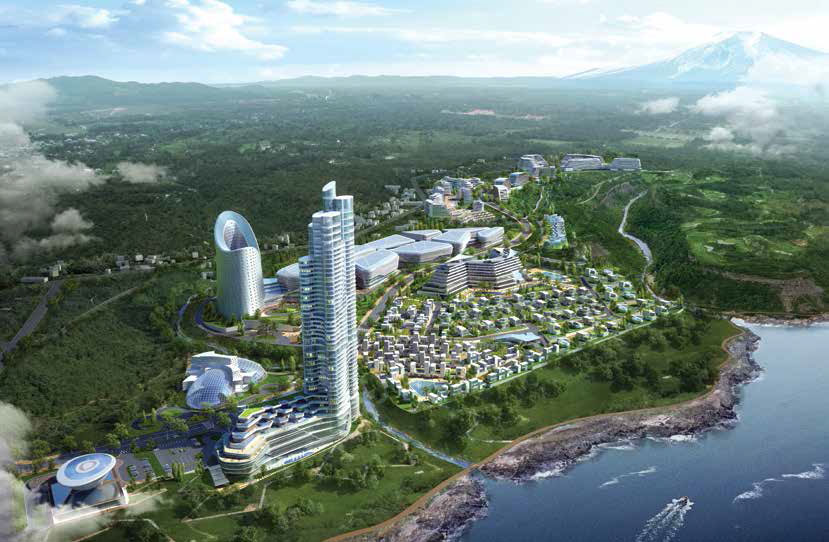
Morgan Stanley says it’s difficult to predict whether the new resort will increase the overall South Korean market or merely cannibalize it. “The market seems to take this as a positive,” the report noted, going by the immediate rise in the stock prices of the country’s two biggest foreigners-only casino operators, Paradise Group and Grand Korea Leisure, in the wake of the announcement. “The reasoning is that it could bolster Chinese gamblers’ growth, which would eventually spill over to Paradise and GKL.
“However, the bears’ argument is also valid in our view,” the report adds. “This is a new entrant, which should make competition fiercer. Although Incheon could benefit from this, existing sites located in other regions (like Seoul and Jeju) could take a hit.”






